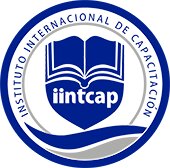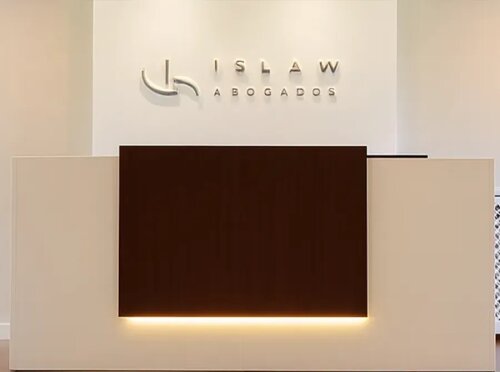Best Mining Law Lawyers in Dominican Republic
Share your needs with us, get contacted by law firms.
Free. Takes 2 min.
Or refine your search by selecting a city:
List of the best lawyers in Dominican Republic
About Mining Law in Dominican Republic
Mining law in the Dominican Republic governs the exploration, extraction, processing, and commercialization of mineral resources. The main regulatory framework for mining activities is Law No. 146 of 1971, also known as the Mining Law, as well as its amendments and complementary regulations. The law sets forth the rights, obligations, and procedures for obtaining mining concessions and regulates the environmental and social impact of mining activities. The Dominican government, through agencies like the General Directorate of Mining (Dirección General de Minería), oversees compliance, authorizations, and enforcement of mining regulations.
Why You May Need a Lawyer
Mining activities involve complex legal, environmental, and financial considerations. Here are some common situations where legal assistance is highly beneficial:
- Applying for exploration or exploitation concessions
- Drafting and negotiating contracts with partners, suppliers, or local communities
- Understanding and complying with environmental regulations
- Resolving disputes over land titles or mining rights
- Handling government interactions, inspections, and audits
- Managing tax obligations or dealing with royalty payments
- Responding to community or stakeholder claims related to mining activities
- Structuring investment or joint ventures with foreign and local entities
- Ensuring compliance with labor regulations in the mining context
- Handling issues related to export or commercialization of mineral products
A qualified lawyer specializing in mining law can help you navigate these challenges, ensuring legal compliance and representing your interests throughout the process.
Local Laws Overview
The core legislation regulating mining in the Dominican Republic is Law No. 146 of 1971. Here are the key aspects of local mining laws:
- Concession System: Mining operations require either exploration or exploitation concessions issued by the government. These concessions give holders the right to search for or extract minerals in a specific area.
- Application Process: Obtaining a concession involves filing an application, environmental studies, public notifications, and governmental approval.
- Duration: Exploration concessions typically last three years, with possible extensions, while exploitation concessions can last up to 75 years.
- Obligations: Concession holders must comply with reporting, safety, and environmental requirements, as well as provide compensation to landowners affected by their activities.
- Royalties and Taxes: Mining companies are subject to state royalties, taxes, and mandatory contributions, which are specified by law and may vary depending on the mineral.
- Land Ownership: Mineral resources are owned by the state, even if the land itself is private. Owners of land used for mining are entitled to compensation.
- Environmental Protection: Environmental impact studies and permits are mandatory before beginning extraction activities. Mining operations must comply with local and national environmental regulations.
- Foreign Investment: Foreign entities can participate in mining activities, provided they comply with all regulatory requirements.
- Community Engagement: Mining companies are encouraged, and sometimes required, to engage with local communities and mitigate impacts on social and cultural environments.
Frequently Asked Questions
What types of mining concessions exist in Dominican Republic?
There are two main types of concessions: exploration concessions (allowing the search for mineral deposits) and exploitation concessions (allowing extraction and commercialization of minerals).
Who grants mining concessions?
Mining concessions are granted by the Dominican government, specifically through the General Directorate of Mining and, ultimately, by Presidential Decree.
Can foreigners apply for mining concessions?
Yes, both foreign and local entities can apply for mining concessions, as long as they comply with legal requirements and procedures.
What is required to obtain a mining concession?
Applicants must submit relevant documentation, conduct environmental impact assessments, notify affected communities, and follow the processes established by law. Legal and technical professionals are often needed to prepare these applications.
Do landowners have rights over the minerals in their land?
No, mineral resources in the Dominican Republic are owned by the state. However, landowners must be compensated for the use of their land or any damages resulting from mining activities.
Are there taxes or royalties for mining operations?
Yes, mining companies must pay royalties, taxes, and other financial obligations to the state. The rate and type of payment depend on the mineral being extracted and specific laws in place.
What are the main environmental requirements?
Before starting extraction activities, companies must complete environmental impact studies and obtain relevant permits. Ongoing compliance with environmental norms is required throughout the life of the project.
Can mining concessions be transferred or sold?
Yes, with prior governmental authorization, concessions can be transferred, assigned, or sold to other parties, observing legal procedures.
How long do concessions last?
Exploration concessions usually last up to three years and can be renewed. Exploitation concessions last up to 75 years, often divided into 25-year periods, with possible extensions.
How are disputes in mining law resolved?
Disputes may be resolved through negotiation, mediation, or, if necessary, litigation in administrative or ordinary courts. Some contracts may provide for arbitration as a mechanism for dispute resolution.
Additional Resources
Several governmental bodies and organizations offer resources and information on mining law in the Dominican Republic:
- General Directorate of Mining (Dirección General de Minería): Primary regulatory body responsible for overseeing mining activities, issuing concessions, and ensuring compliance.
- Ministry of Energy and Mines (Ministerio de Energía y Minas): Sets broader policies and strategies related to mining and energy resources.
- Environmental Ministry (Ministerio de Medio Ambiente y Recursos Naturales): Regulates and approves environmental permits and ensures environmental protection in mining operations.
- Chamber of Mining of the Dominican Republic (Cámara Minera Petrolera de la República Dominicana): Industry association offering information, advocacy, and support for mining companies and investors.
- Local Bar Associations: For referrals to qualified legal professionals specializing in mining and environmental law.
Next Steps
If you need legal assistance regarding mining law in the Dominican Republic, consider the following actions:
- Gather all relevant documents and information concerning your interests or operations
- Identify whether your matter relates to a new concession, an existing operation, a legal dispute, or compliance issues
- Consult with a lawyer or law firm experienced in Dominican mining law to analyze your situation and recommend a strategy
- If you plan to apply for a concession, prepare for the application by organizing technical studies, environmental evaluations, and community consultation as required
- Engage early with regulatory bodies to ensure you understand timelines, requirements, and obligations
- In case of disputes or legal uncertainty, seek legal advice before taking any actions that could affect your rights or operations
Prompt legal advice will help you understand your rights and obligations, avoid costly mistakes, and ensure compliance with all aspects of Dominican mining law.
Lawzana helps you find the best lawyers and law firms in Dominican Republic through a curated and pre-screened list of qualified legal professionals. Our platform offers rankings and detailed profiles of attorneys and law firms, allowing you to compare based on practice areas, including Mining Law, experience, and client feedback.
Each profile includes a description of the firm's areas of practice, client reviews, team members and partners, year of establishment, spoken languages, office locations, contact information, social media presence, and any published articles or resources. Most firms on our platform speak English and are experienced in both local and international legal matters.
Get a quote from top-rated law firms in Dominican Republic — quickly, securely, and without unnecessary hassle.
Disclaimer:
The information provided on this page is for general informational purposes only and does not constitute legal advice. While we strive to ensure the accuracy and relevance of the content, legal information may change over time, and interpretations of the law can vary. You should always consult with a qualified legal professional for advice specific to your situation.
We disclaim all liability for actions taken or not taken based on the content of this page. If you believe any information is incorrect or outdated, please contact us, and we will review and update it where appropriate.
Browse mining law law firms by city in Dominican Republic
Refine your search by selecting a city.














